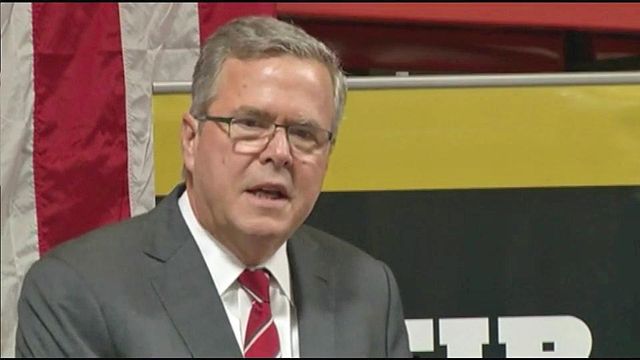2016 race will start early in NC
A change in the law puts North Carolina in play much earlier in the 2016 presidential primary cycle.
Posted — UpdatedIn years past, North Carolina’s presidential preference primary has taken place in May, by which time the races are generally – although not always – decided. But in 2013, state lawmakers voted to move the primary to one week after South Carolina’s primary. That’s usually in late January, which would put North Carolina’s 2016 primary in early February.
“This means that we are going to be a player,” said Meredith College Visiting Professor of Political Science David McLennan. “We're going to be the second Southern primary. We know the Republicans really eye the South as the key to their general election victory, so this is all part of the big plan for North Carolina to become an even more significant player than we have been.”
North Carolina’s newly heightened profile was on display in 2014, when a lengthy parade of presidential hopefuls visited the state during the U.S. Senate campaign. Bush, New Jersey Gov. Chris Christie, Texas Gov. Rick Perry, U.S. Sen. Rand Paul of Kentucky, 2012 presidential candidate Mitt Romney and Wisconsin Congressman Paul Ryan all stumped for Sen.-elect Thom Tillis, while former Secretary of State Hillary Clinton campaigned for defeated Democratic incumbent Sen. Kay Hagan.
McLennan expects to see a lot more of all of them in the months ahead.
“We’re going to see not only candidates coming to North Carolina to campaign for the primary, but also start seeing ads again. We’re not getting much of a respite from those campaign ads we just thought we had finished just weeks ago,” he said.
Early polling has shown conservative commentator Ben Carson doing better in North Carolina than he is nationwide – largely, McLennan thinks, because Carson has been to the state several times. However, those early polls were taken before Bush announced his intentions Dec. 16 to explore a run.
Still, he could face a stiff challenge from the right in North Carolina, especially given his support for immigration reform. That’s the biggest vulnerability in his conservative bona fides, McLennan says, and one that could give him trouble in other conservative states as well.
“I think he’s a name-brand candidate, and I think he’s a proven fundraiser. He’s got a lot of attractive qualities for establishment Republicans. The difficulty is, what’s going to happen with the primary voters in the Republican party?" said McLennan. "The primary voters tend to be more conservative than they are in the general election. Can Bush get his supporters out to battle the tea party candidates, whoever they may be?”
McLennan says he expects Bush will formally announce his candidacy by the end of the month, and he thinks Clinton will also officially declare she's in before the end of January, even though she's less likely than Bush to face a crowded primary.
"She’s got to start the general election campaign," he said. "She has said in some speeches that she doesn’t have a problem with taking it to the Republicans. I think we’re going to start seeing that very early on. She’s not going to wait until they define her. She’s going to define them."
• Credits
Copyright 2024 by Capitol Broadcasting Company. All rights reserved. This material may not be published, broadcast, rewritten or redistributed.





